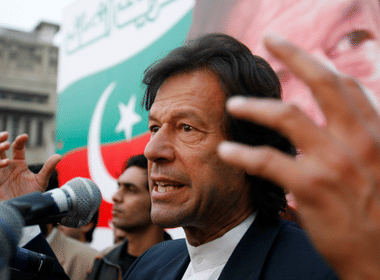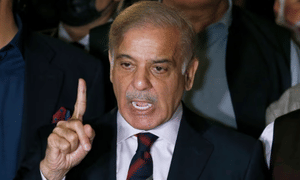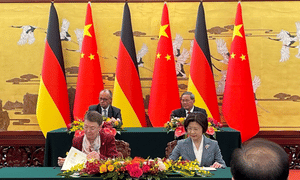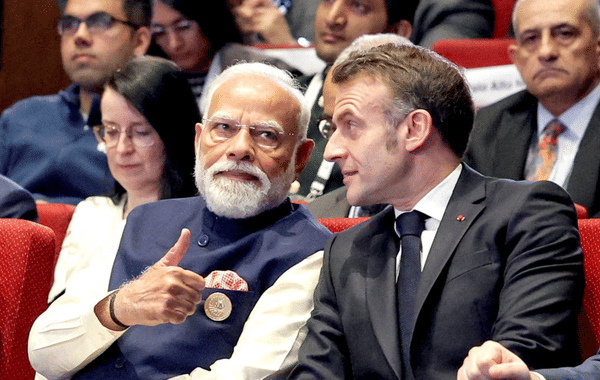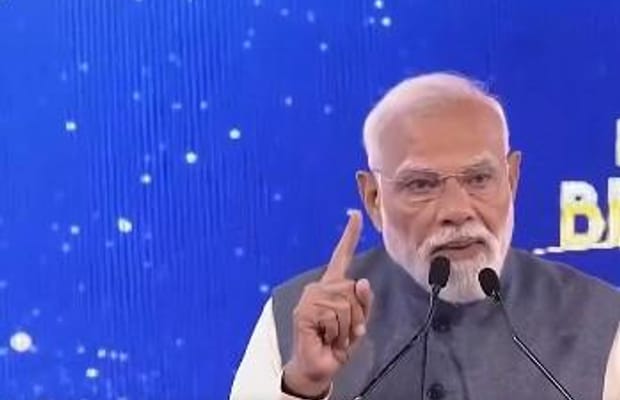
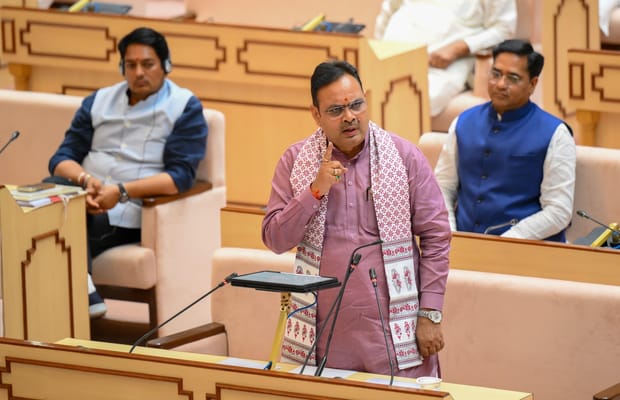


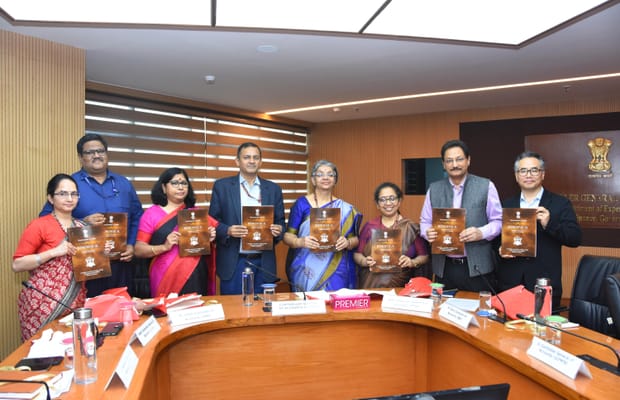
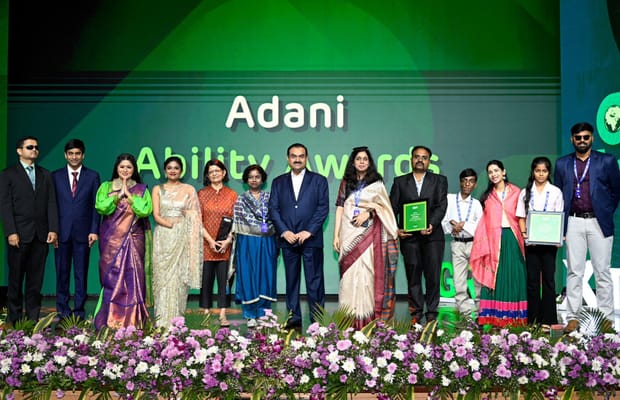
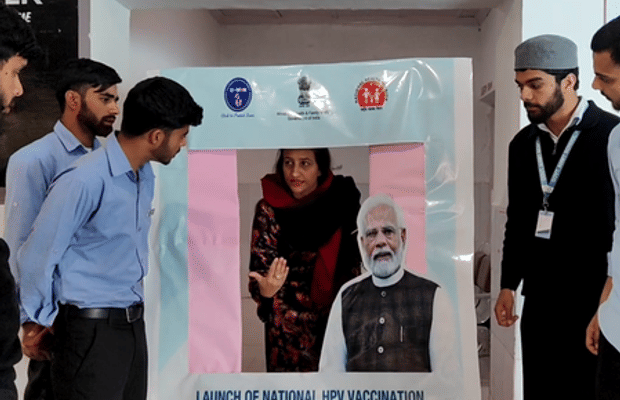
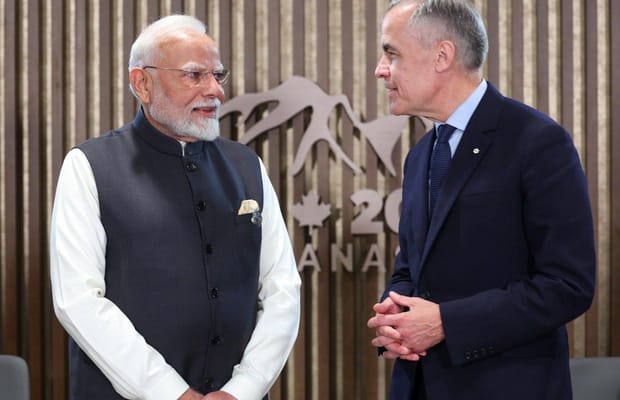
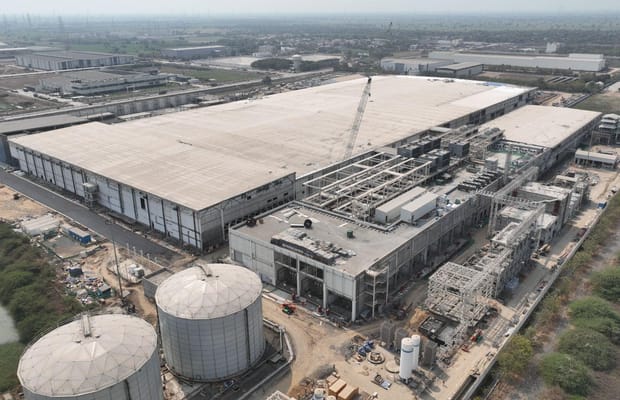
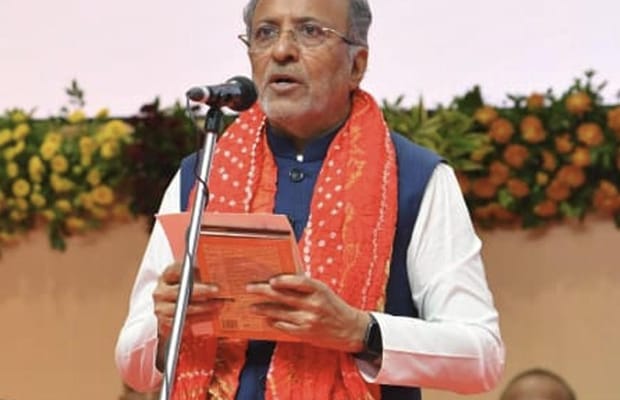
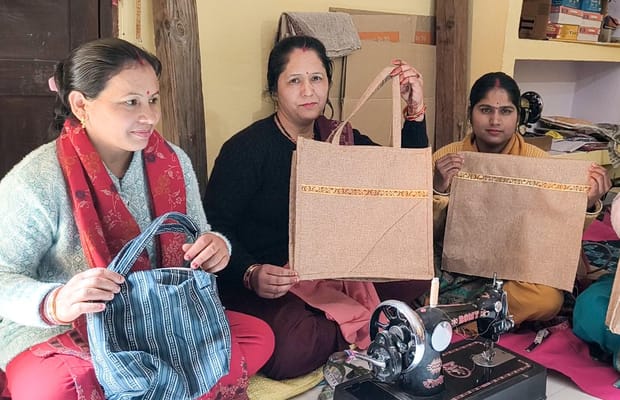
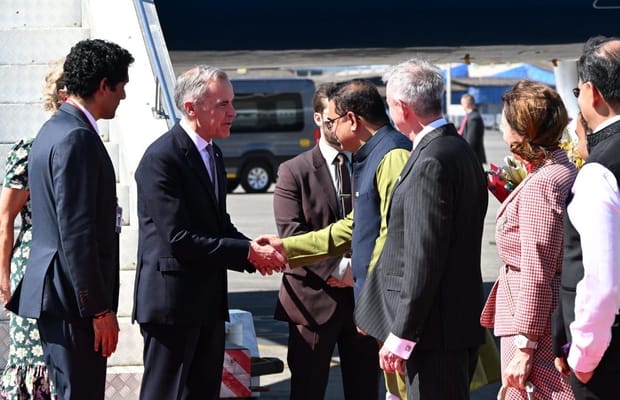

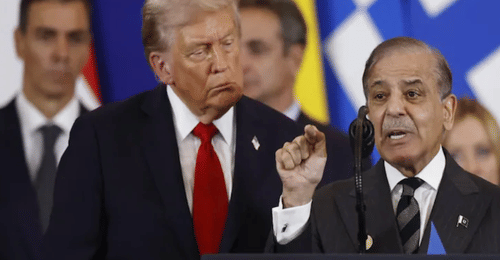

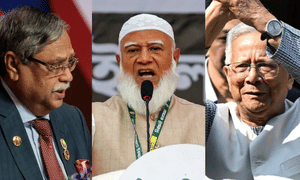



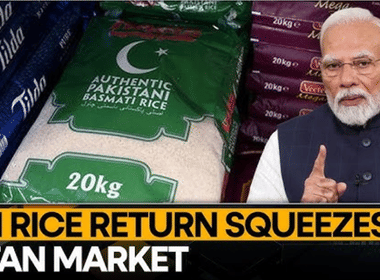



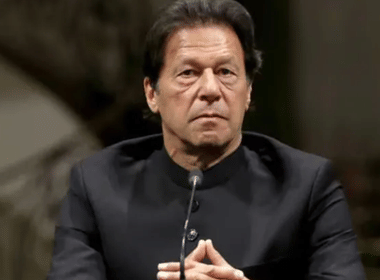
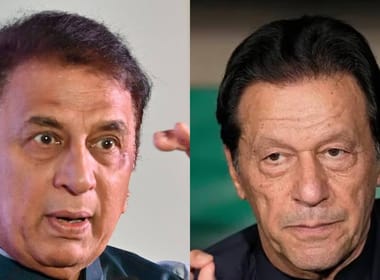

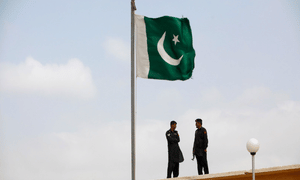

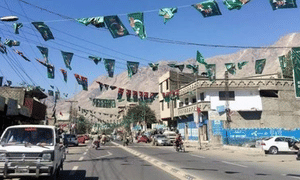
Pakistan-administered Gilgit-Baltistan (PoGB) is grappling with a severe water crisis, with residents of Gilgit city struggling to access even basic drinking water. Prolonged power outages have disrupted water supply systems, according to a Facebook post by WTV. The shortage has sparked protests, particularly led by women, who accuse authorities of administrative negligence and poor governance. For several days, taps in multiple neighborhoods have run dry. The crisis is largely due to limited electricity, which has halted the water pumping system, preventing citywide distribution and forcing residents to seek alternative sources.
Political leader Amjad Hussain Azar, who visited protest sites, explained that water scarcity typically worsens in February and March, when demand rises while supply drops. He noted that electricity shortages during this period severely impact water distribution, leaving the city struggling.
Protests have been reported in areas such as the Bazaar locality and Jutial. Azar highlighted that women are particularly affected, as household chores become increasingly difficult without a steady water supply. Officials were reportedly aware that Gilgit’s main water pump needed a dedicated power line to operate efficiently. The Gilgit Development Authority had formally requested the Water and Power Department to install the line, but despite assurances, the infrastructure was never provided, as cited in the WTV post.
During his visit, Azar contacted representatives from the electricity and water departments and administrative officials to assess the situation. It was found that the pump near the Tablighi Centre could not function properly due to the lack of a dedicated power line. With electricity available for barely an hour, supplying water to the entire city became impossible, prolonging the shortage and validating protesters’ grievances.
Residents say the water crisis reflects wider systemic mismanagement in Pakistan-administered Gilgit-Baltistan. Beyond water scarcity, the region also suffers from frequent power outages, weak infrastructure, limited job opportunities, and healthcare facilities lacking doctors and essential medicines, according to the WTV post.
Disclaimer: This image is taken from Reuters.

Eleven fishermen from Tamil Nadu, who had been imprisoned in Sri Lanka, returned to Chennai by flight on Thursday. They arrived at Chennai airport from Colombo on an IndiGo Airlines flight, where officials from the Tamil Nadu Fisheries Department received them and arranged transport to their home districts of Ramanathapuram, Nagapattinam, and Mayiladuthurai. Among the 11 fishermen, four were from Ramanathapuram, and seven hailed from Nagapattinam and Mayiladuthurai.
The fishermen had set out for fishing on July 23, 2025, in a mechanised boat when a Sri Lankan naval patrol intercepted them during the early hours. Sri Lankan authorities alleged that the fishermen had crossed the maritime boundary and were fishing in Sri Lankan waters. Their boat, catch, and fishing nets were seized, and all 11 were arrested and later presented before a court in Sri Lanka.
Following the arrests, the fishermen’s families appealed to the government for intervention. Tamil Nadu Chief Minister MK Stalin wrote to External Affairs Minister S Jaishankar and Prime Minister Narendra Modi, requesting action. The Indian High Commission officials in Sri Lanka negotiated with local authorities, and a Sri Lankan court eventually ordered the release of the fishermen, who were handed over to Indian High Commission officials. Medical examinations were conducted, and Emergency Certificates were issued before their return to India.
Meanwhile, tensions escalated as the Sri Lankan Navy detained 22 Tamil Nadu fishermen and seized four fishing boats in two separate incidents on Wednesday. CR Senthilvel, Vice President of the National Fishermen Association, stated that over 450 fishing boats from Rameswaram had been fishing in the Gulf of Mannar between Dhanushkodi and Thalaimannar when three boats and 18 fishermen were arrested for allegedly crossing the maritime boundary. In a separate incident, a boat from Mandapam was intercepted near Neduntheevu in the Palk Strait, and four fishermen were taken into custody along with the boat. These detentions have caused distress and concern among the families and boat owners in Rameswaram and Mandapam.
Disclaimer: This image is taken from ANI.

The mother of 23-year-old Sahil Dhaneshra, who was killed in a car crash in Delhi on February 3, said the accident occurred while a minor was speeding in an SUV to shoot reels. The incident happened in Dwarka when the 17-year-old, driving a Scorpio without a licence, collided head-on with Sahil’s motorcycle. The SUV then crashed into a parked car, seriously injuring a nearby resting taxi driver.
In an interview with ANI, Sahil’s mother, Inna Makan, a single parent, alleged the teen was focused on recording reels, driving in the wrong lane, and performing stunts. She said the collision caused severe damage to the bus, parked car, and injured the taxi driver. Makan described the incident as criminal, noting the teen had prior speeding challans and criticized the parents for not restraining him.
Initially, Delhi Police listed the accused’s age as 19 to try him as an adult, but documentation later confirmed he is 17. His father was briefly detained, and will still face charges under the Motor Vehicles Act. The minor was sent to a juvenile observation home and later granted interim bail to appear for his Class 10 board exams.
In a video message, Makan said she raised her son alone and called on Dwarka residents and media to support her fight for justice. The police registered cases under sections for rash driving, causing death by negligence, and endangering lives under the Bharatiya Nyaya Sanhita. The accident occurred near Lal Bahadur Shastri College around noon. All three vehicles were seized and inspected, and CCTV footage collected. The investigation is ongoing.
Disclaimer: This image is taken from India Today.

Mumbai has been transformed into a vibrant display of international diplomacy, with posters and banners welcoming French President Emmanuel Macron and First Lady Brigitte Macron. The visual tribute coincides with their high-profile visit to India from February 16 to 19, covering both the financial and national capitals.
President Macron arrives in Mumbai today for his fourth visit to India, invited by PM Narendra Modi, reflecting the steady momentum in the India-France strategic partnership, particularly in Artificial Intelligence (AI) and emerging technologies. According to the French Embassy, the visit marks another important chapter in the deepening ties between New Delhi and Paris, which span defence, space, civil nuclear energy, climate action, and education.
Macron’s engagement builds on his previous visits, including his first trip in 2018, attendance at the 2023 G20 Summit, and his 2024 State Visit as the Chief Guest for India’s 75th Republic Day. During that milestone, the two leaders declared 2026 as the India-France Year of Innovation, which they will formally inaugurate in Mumbai during this visit.
On February 17, PM Modi and President Macron will hold extensive discussions in Mumbai to advance bilateral cooperation under the Horizon 2047 Roadmap, a long-term vision stemming from India’s first Strategic Partnership with France in 1998. They will also discuss regional and global issues, including Indo-Pacific cooperation, highlighting growing strategic alignment.
After Mumbai, the delegation will travel to Delhi for the India AI Impact Summit 2026 at Bharat Mandapam from February 16 to 20. This is the first global AI summit hosted in the Global South. President Macron’s participation underscores the shared emphasis on emerging technologies, building on the AI Action Summit co-chaired by Modi and Macron in Paris in February 2025.
The five-day summit is structured around three pillars—People, Planet, and Progress—and seeks to move discussions on AI governance from rhetoric to actionable outcomes. It will convene global leaders, policymakers, and innovators to explore AI’s role in governance and sustainable development. Complementing the summit, the India AI Impact Expo will cover 70,000 square metres with over 300 exhibitors from 30 countries across 10 thematic pavilions, showcasing AI’s transition from research to large-scale application. This initiative aligns with the IndiaAI Mission and the Digital India Initiative, emphasizing a development-focused approach that translates technological discourse into practical, people-centric results.
Disclaimer: This image is taken from ANI.



In his first remarks following the arrest of Andrew Mountbatten-Windsor, Prime Minister Anthony Albanese described the former prince’s situation as an extraordinary fall from grace. Although Albanese supports a republican Australia, he stated that this scandal would not trigger another referendum. Speaking with Guardian Australia’s political editor Tom McIlroy, the PM also criticized Pauline Hanson’s remarks about Muslim Australians and addressed the potential return of the 34 wives and children of Australian Islamic State fighters currently in Syria.
Disclaimer: This podcast is taken from The Guardian.

Japanese Prime Minister Sanae Takaichi’s coalition secured a historic victory in Sunday’s (Feb 8) election, setting the stage for planned tax cuts that have rattled financial markets, as well as increased military spending to counter China. For insights into this outcome, Andrea Heng and Genevieve Woo consulted Dr. Lim Tai Wei, East Asia specialist and Professor at Soka University, Japan.
Disclaimer: This podcast is taken from CNA.

South Korean President Lee Jae Myung will visit Japan on January 13–14 for a summit with Japanese Prime Minister Sanae Takaichi. The leaders are scheduled to meet in Nara City on January 13, followed by a dinner, where discussions are expected to cover regional and global matters, as well as economic and social issues. Andrea Heng and Hairianto Diman speak with Michiyo Ishida, CNA’s senior correspondent, for more details.
Disclaimer: This podcast is taken from CNA.

Singapore’s “dead birds” hotline recorded its highest number of reports last year, reflecting a growing toll of birds killed after colliding with glass surfaces on buildings. The museum notes that the problem is expanding beyond sheer numbers, now affecting newer and sometimes rarer species as urban development intensifies. The report explores the causes behind these collisions, the reasons bird-friendly architecture has yet to become common practice, and the practical solutions—such as specially treated glass and façade modifications—that could significantly reduce bird deaths. Andrea Heng and Rani Samtani discuss these issues with Dr Tan Yen Yi, Research Fellow at the Lee Kong Chian Natural History Museum, Faculty of Science, National University of Singapore.
Disclaimer: This podcast is taken from CNA.








